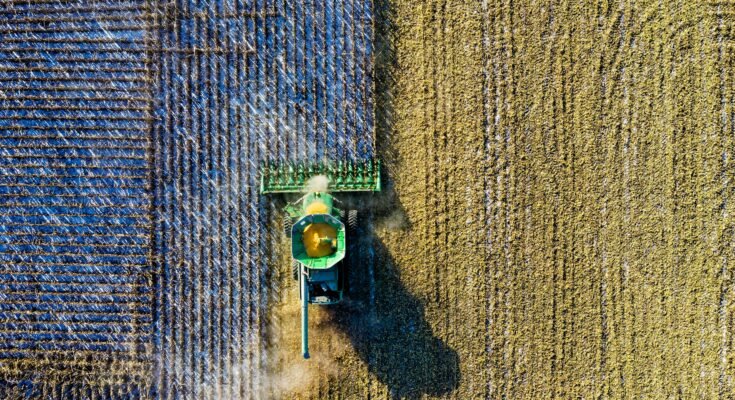Agriculture:
Then and Now Since the beginning of human civilization, farming has been a vital part of our development. Despite the huge changes in climate, technology and industry, agrarian communities remain a cornerstone of our global economy.
Agriculture is the oldest and most essential human activity. For millennia, agricultural practices have played a pivotal role in all of human society. The birth of farming Agriculture began circa 10,000 BCE when early humans abandoned their hunter-gatherer lifestyles and settled in small farming communities. Domesticating plants and animals enabled us to produce food surpluses that fed larger populations and facilitated the growth of cities. The development of civilization was far from smooth, with human history full of famine and the collapse of once-grand societies.
Despite these setbacks, each agricultural failure brought new knowledge which led to the rapid spread of crops from one region to another. Global agriculture Shared agricultural practices helped early societies to form alliances and partnerships, which in turn facilitated the spread of information and resources. From the printing press to the internet, mankind has always found new ways to connect and collaborate with one another.
It is no coincidence that the modern nation-state was born amidst a tumultuous period of imperialism and trade, with agriculture playing a vital role in the expansion of global trade. The Green Revolution received its name in the 1960s, but the industrialization of agriculture was already well underway: in the mid-20th century, the sudden increase in food production was largely down to advances in farming practices and the introduction of high-yield crops.
At no other time in history had so few people been responsible for producing so much food; millions of farmers now grew all the food for millions of people. A new industry was born – agribusiness prospered and farmers enjoyed prosperity, but at what cost? The future of agriculture 80% of jobs in agriculture are now classed as non agrarian, a huge shift from less than a hundred years ago.
Farming itself has evolved from being a simple family activity into high-tech agribusinesses that span thousands of miles. Farmers now rely on precision machines and drones to help them to grow more crops, while biotechnology means that we can engineer the plants and seeds that we use in our farming practices. Millions of people are employed in agriculture today, making it one of the largest industries in the world.
Agriculture employs more than one billion people worldwide, meanwhile the US has over two million farms that employ just 1.3% of the population. And so looks to continue generating jobs both in the local and international economy. Understandably then for its huge role in the daily lives of millions; and the millions of global jobs, why it’s so crucial that we protect agriculture as best as we possibly can.
Food Security: The continua rise in the global populations makes food security an issue everyone has to fret over. Increasing food production strategies should be harmonized with environmental protection and sustainable use.
The Future of Agriculture
Technology, climate change, and changing consumer tastes are some of the factors projecting what agriculture will look like from now onwards. Here are a few trends to keep an eye on:
Vertical farming has gained traction in urban agriculture whereby vertical farms are growing food in vertical stacks. This will save transport costs, ensuring the consumer gets fresher produce.
Alternative proteins are emerging as solutions for the consumer who is increasingly worried about the environmental costs of meat production. These include: plant-based and lab-grown meats.
Climate resilience: The changing patterns of climate impacting weather conditions along with the ability of crops to survive will render future food security most reliant on resilient farming practices and resilient crop varieties.
Digital agriculture: With new artificial intelligence, machine learning, and big data in farming practices, there are hopes of improving both productivity and sustainability, giving farmers tools to improve the management of their crops.
Conclusion
Agriculture is one of the core values of human existence laying a foundation on economies, cultures, and communities all over the world. The evolution of agriculture in this century will play a major role in food security, sustainability, and environmental stewardship. The balance between innovative ideas while respecting conventional practices will determine how agriculture will continue to exist in harmony with the earth.
Any investment in the progressive understanding and bolstering of the agricultural sector can only be considered an investment toward a more sustainable future for generations to come.

